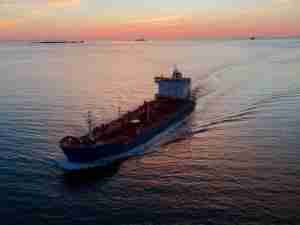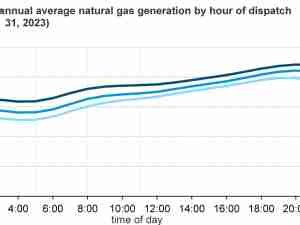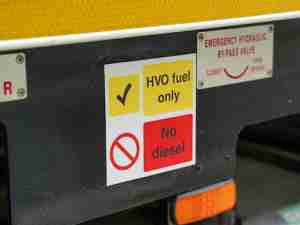Spain has asked the European Union to take a tougher stance on Russian liquefied natural gas imports by ensuring that countries can block them without shipments being diverted to neighbors.
The country has seen deliveries from Russia double since the invasion of Ukraine to make up roughly a fifth of its gas imports last year. While the EU will soon allow member states to block such flows without the use of sanctions, Spain’s Energy Minister Teresa Ribera said it’s not clear how the tool will work.
“We have to ensure the response is effective,” she said in an interview on the sidelines of an EU energy ministers meeting on Monday. “Please let’s try and coordinate how we react on this, both on the spot market and existing contracts.”
So far, Finland — which first proposed the measure that will enter into force in the coming weeks — is one of the few countries that will use the ban, according to a person familiar with the matter. Its imports of Russian gas are basically zero.
For Spain and a number of other European countries that are more reliant on Russian cargoes, the plan poses a dilemma. Most of their shipments arrive via the Belgian port of Zeebrugge, and one EU nation blocking imports could just see them go elsewhere.
Guidance is also needed on how to get companies out of long-term take-or-pay contracts with Moscow, Ribera said, while making sure the gas isn’t simply repackaged in another third country.
The debate comes at a critical moment as the EU tries to figure out not only whether it can eliminate the last remaining gas flows from Russia, but whether countries most reliant on those supplies can find alternatives. The EU wants to be fully rid of Russian fossil fuels by 2027, and Lithuania has called on the bloc to put in place legislative measures to ensure gas has stopped flowing by then.
The EU’s energy commissioner Kadri Simson told member states on Monday that the bloc is open to providing guidance on stopping Russian LNG imports and will actively promote the tool’s use once it’s in place, according to people familiar with the matter. Parliament will vote on the measure as part of a gas package in April.
“We must end this year with even less Russian gas in our system than the year before,” Simson told reporters after the meeting, adding that Russia was the EU’s second biggest supplier after the US in 2023.
In addition to LNG, Russian gas still flows through a pipeline via Ukraine feeding the demand of central European nations. The commission has said it will not extend a deal for using that pipeline, which is due to expire at the end of the year. Countries such as Austria, Slovakia, Czech Republic and Hungary use other routes, but have warned that a charge imposed by Germany raises the cost of getting gas from the West and might make them even more reliant on Moscow.
There are still concerns that individual countries or companies may try and keep the route open. Austria, for example, continues to receive more than half its gas from Russia, with payments to Gazprom increasing under its long-term contract because of higher fuel prices since the onset of the war, according to regulatory data.
“The uncertainties are if and how much gas will transit after the expiry of the agreement,” said Leonore Gewessler, Austria’s energy minister. “There’s one thing I’m absolutely sure about — Vladimir Putin will use any opportunity to blackmail us, to pressure us on gas deliveries.”








